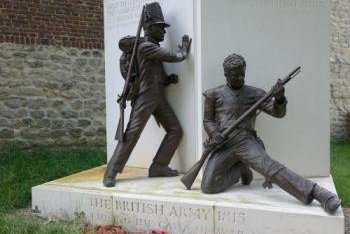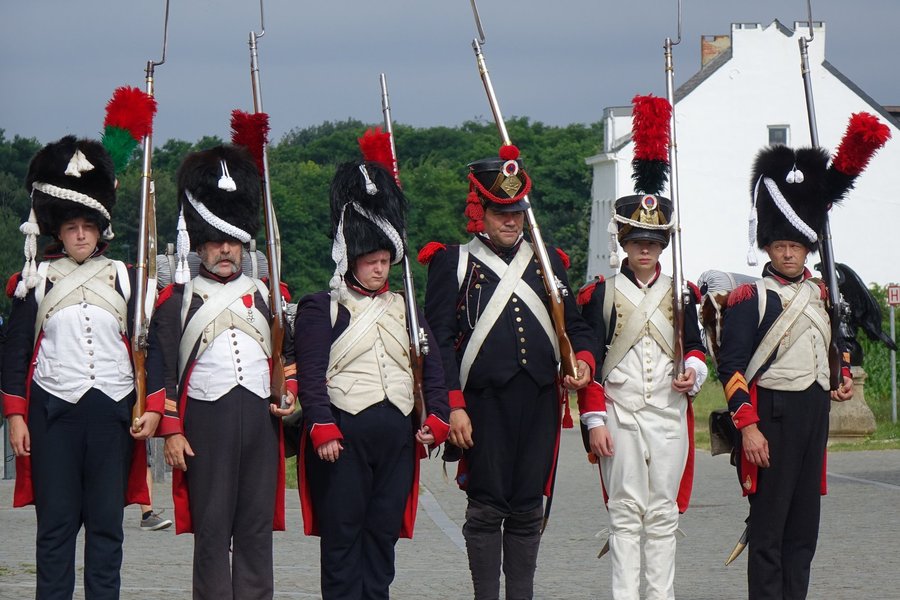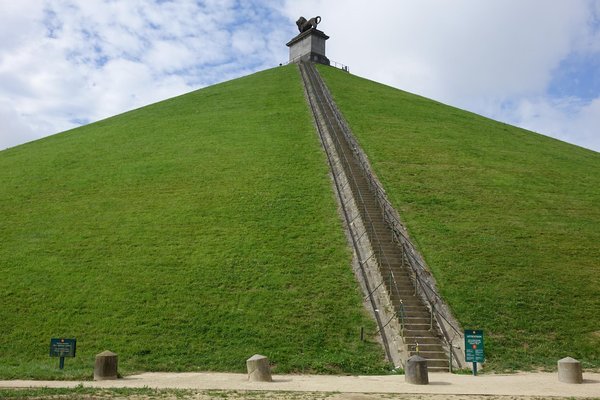Belgium
Le champ de bataille de Waterloo
Site Info
Official Information
- Full Name
- Le champ de bataille de Waterloo, la fin de l’épopée napoléonienne (ID: 5362)
- Country
- Belgium
- Status
-
On tentative list 2008
Site history
History of Le champ de bataille de Waterloo
- 2008: Added to Tentative List
- Added to tentative list
- Type
- Cultural
- Criteria
Links
- UNESCO
- whc.unesco.org
All Links
UNESCO.org
- whc.unesco.org — whc.unesco.org
Community Information
- Community Category
- Secular structure: Memorials and Monuments
Travel Information
Recent Connections
News
No news.
Recent Visitors
Visitors of Le champ de bataille de Waterloo
- Afshin Iranpour
- Alexander Lehmann
- Ammon Watkins
- Andrea Szabo
- Astraftis
- bergecn
- bossc
- Bram de Bruin
- butterflybird
- Can SARICA
- Carlos Sotelo
- Cezar Grozavu
- ChrisDorn
- Christoph
- Clyde
- Csaba Nováczky
- ctravel
- Damientournay
- Dani Cyr
- Daniel Chazad
- David Berlanda
- Deffra
- Digits
- Dimitar Krastev
- Els Slots
- erdsaumnaht
- Erik Jelinek
- Errol Neo
- Evgenii
- Fam39
- Femke Roos
- Francky D'Hoop
- George Gdanski
- Hadrianus
- Hammeel
- henrik_hannfors
- Hubert
- Ian Cade
- Jakob F.
- James Bowyer
- Jana and Matt
- Jan Zimmermann
- Jasam
- Jay T
- Jean Lecaillon
- Jeanne OGrady
- Jesse S 2010
- John Smaranda
- jonathanfr
- JoStof
- Jurre
- Kurt Lauer
- Laurey
- Lucas Del Puppo
- Maciej Gil
- Martina Rúčková
- Mathijs
- MaxHeAnouBen
- M. Huineman
- MichaelH
- MoPython
- Nick M
- Patrik
- Pieter Dijkshoorn
- PlacesWeHaveBeenTo
- Ralf Regele
- Reisedachs
- Riccardo Quaranta
- Rick Ohm
- Roel Sterken
- Roger Ourset
- Roman Bruehwiler
- Rudegirl
- Solivagant
- Stefan A. Michelfeit
- Tamara Ratz
- Thomas Harold Watson
- Thomas van der Walt
- Timonator
- tommasorossotti
- tony0001
- Truls Brekke
- Tsunami
- WalGra
- Walter
- WILLIAM RICH
- Wo_ko
- Xiquinho Silva
- Yevhen Ivanovych
Community Reviews
Show full reviewsThomas Harold Watson
Le champ de bataille de Waterloo
Le champ de bataille de Waterloo (On tentative list)

The French won’t like it one bit if this doesn’t be becomes a world heritage site (they even had it blocked from being on a two euro coin…although Belgium did make a 2.5 euro coin successfully afterwards), but it truly hope it does. This battle changed the history of the world and surely that is exactly what UNESCO is meant to preserve!
I was on route to Brussels when I accidentally came across this location, it is so impressive and impossible to miss if anywhere near. An extremely GIANT mound with an impressive lion on top.
The ticket was really expensive but included a visit to the museum (which is pretty cool as it’s underground). There was also another building next to it with a giant 360° panoramic image (that you stand in the middle of) of the battle of Waterloo happening so you feel like you’re right there.
There are steps to the top of the mound, so make sure you climb it…just be warned that there are no stops or larger steps you can easily rest on, so take it easy all the way up!
Keep reading 0 comments
With no less than 17 entries, the Belgian Tentative List keeps on providing opportunities for rewarding day trips from my home. So this Saturday I drove just south of Brussels to a spot near the town of Waterloo, famous for the eponymous battle of 1815. It is actually home to two TWHS: the Battlefield of Waterloo and the Panorama of the Battle of Waterloo. Both nowadays are located on the grounds of the Mémorial 1815.
I arrived at 9.30 in the morning, right at the opening hour. The large car park already held some 20 cars and a bus. I had been wondering whether this is a busy site, but it turned out that I was the first visitor of the day. The other vehicles must have belonged to the staff and the ‘actors’ that carry out the reenactments which spice up the visitor experience during summer days.
For a long time the Waterloo Battlefield and its huge Lion’s Mound had been a popular but not all that interesting destination for school trips. However, the bicentennial of the battle (in 2015) lead to a modernization of the site. An underground exhibition has been built, and the farmhouse of Hougoumont – where an important episode of the Battle took place - has been fully restored. They’re probably still paying the bills, as the entrance fee is a hefty 17 EUR.
The fee does include an audio guide, which leads you through an underground exhibition. It does tell the historical circumstances of …
Keep reading 0 comments
Interesting for a sunny day trip. Highlights were the lion mound and the panoramic museum but I don't think this site deserves WH status.
Keep reading 0 comments
